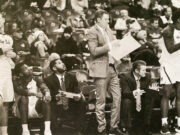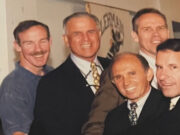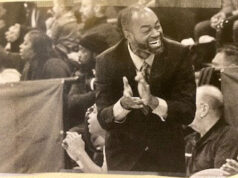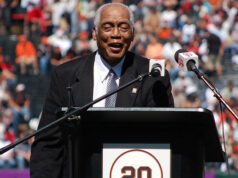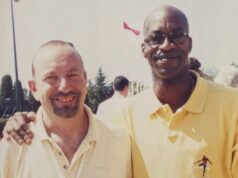With Paul Schienberg, Ph.D.
Andy Fox plays shortstop and third base for the Florida Marlins. He was born and raised in Sacramento, California. He began his major league career with the New York Yankees. After two years with them, he was traded to the Arizona Diamondbacks where he had his most successful year in 1998. Andy played in 139 games, batted .277, scored 67 runs, and batted in 44 RBI’s. He moved on to the Florida Marlins in 2000 and again had a very successful year in 2002 where he started in 133 games, batted .251, scored 55 runs and drove in 41 runs.
Schienberg: We are interested in the mental aspects of playing baseball.
Fox: Fine. I think playing baseball is a day in and day out thing. You try to get into a routine … as far as physically and mentally. It is not so much how many ground balls or swings you take … it’s the quality of what you do … the more you play this game the more you understand that getting into a routine the more it is a reaction thing, not a thought … like here comes a groundball I got to do this … the more you concentrate on the physical things the more the mental things just come along.
Schienberg: The season is long…keeping that focus over a long time…does it take a pacing?
Fox: Not pacing. The more you do it the more you get used to the grind of it. You get used to the ups and downs of it. Through the work and preparation you try to eliminate the length of the rough spells…instead of going zero for twenty you go zero for ten…you try… staying on an even keel mentally…is probably the biggest thing in this game…it is probably what separates those guys that are in the big league vs. those who stay in the minors…they just can’t deal with the failure aspect of it. Once you understand that be able to deal with it, you get more successful.
Schienberg: I’m sure when you get into a slump a lot of people give you advice about what to do. Do you ignore that as much as possible?
Fox: I think when there is a slump there is a problem and you have to find something that works for you. It is good to work closely with the hitting coach. Sometimes there is a key phrase that you can use….like “stay back” or “are you seeing the ball?” The first thing is to understand the problem and the second is to do something that would eliminate and create a new muscle memory.
Schienberg: I know you are the starting short stop. So you are constantly out there.
Fox: No. I was the starting short stop last year. The kid I was playing for last year recovered from his injury.
Schienberg: When you play short stop…can you tell me about the chemistry between you and the second baseman?
Fox: It’s critical. You get used to a certain player. He knows what balls you can get to and you get to know his range as well. Last year I never played with Billy Castillo. It took a while for us to get used to each other. There is a chemistry you need to develop and there is an unspoken language that you develop with each other.
Schienberg: What is it like for you to be on the team? Last year you were a starter…
Fox: I’ve been a back up my whole career. So I’m sort of used to it.
Schienberg: You had a good year last year.
Fox: Thank you. Yes. I was happy with how I performed. You get used to your role on the team. You prepare to play every day, just in case you get an opportunity. You say to yourself, ok I’m backing up now and do some things to keep myself fresh…and prepare to play whether it is once a week or twice a week.
Schienberg: Jeff Torborg, the manager, nice guy.
Fox: Yes. Very nice guy. He is a great communicator. He checks with every player every day to see how you are doing. Cares about family. You don’t hesitate to go to him and say this is going on or that’s going on. It’s so important. He’s honest. I wish I had more time. But it’s time for me to do hitting.
Schienberg: Thanks for your time. Good luck this year.
Fox: Take care.


